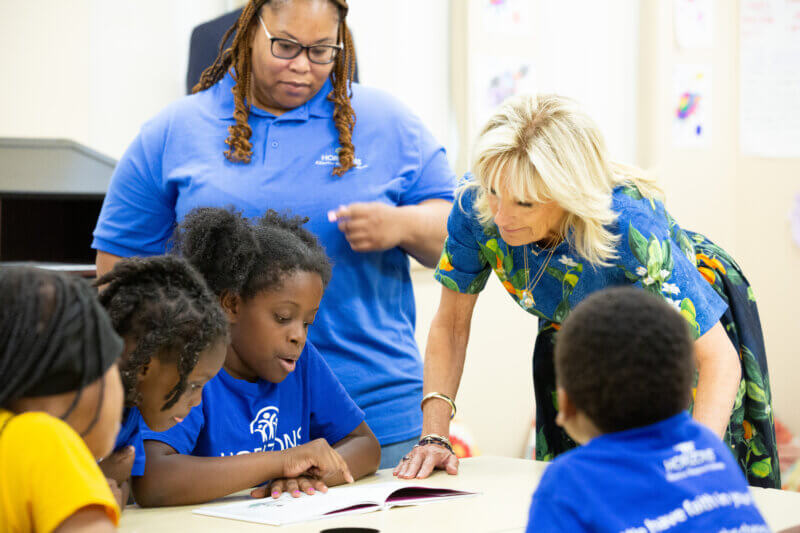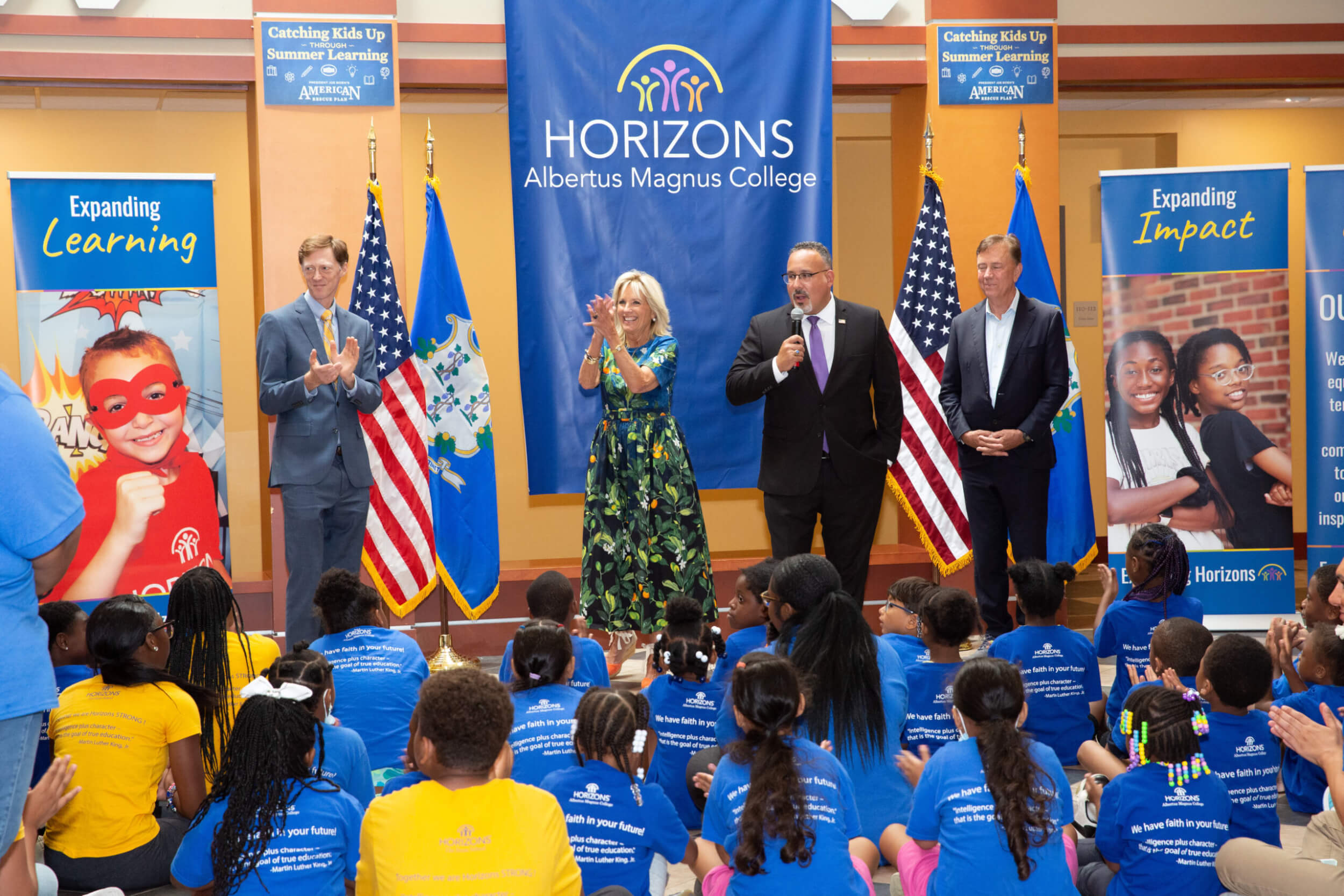Last summer Dr. Jill Biden and Education Secretary Dr. Miguel Cardona embarked on a tour of three Horizons programs to highlight how critical out-of-school-time programs are in COVID-19 recovery efforts, when it comes to effectively dealing with learning loss and achievement gaps caused by the pandemic. The Horizons tour included the newly launched Horizons program at Albertus Magnus College in New Haven, Conn., The Foote School in New Haven, and Horizons Atlanta at the University of Georgia.

Throughout the tour, Dr. Biden and Dr. Cardona got to experience the robust programs first hand by interacting with students, teachers, and families. From reading to swimming to building with LEGOs®, the First Lady and Education Secretary witnessed, in real time, the myriad opportunities that Horizons offers its students and the tremendous impact the program has on communities.
Multiple studies have shown that students who were already falling behind academically prior to the pandemic were the hardest hit. Data from the Institute of Educational Sciences shows that the nation’s public schools were severely affected by the pandemic in terms of staffing, student behavior, attendance, nutrition, and mental health.
“There was a lot of disruption in actually providing quality instruction to students, whether it is access to a teacher, a live teacher, or the mode of learning was chaotic and vacillating, and it varied by race and ethnicity,” said Commissioner Peggy Carr of the National Center for Education Statistics, an arm of the Institute. “This is an important way to understand the impact of the pandemic on our country.”
A May 2022 survey conducted by the Institute found that more than 80% of public schools reported “stunted behavioral and socioemotional development” in their students because of the COVID-19 pandemic,” a 56% increase in “classroom disruptions from student misconduct,” and a 49% increase in “rowdiness outside of the classroom.”
A McKinsey & Company study published in July 2021 showed that the impact of the pandemic on K–12 student learning was significant, leaving students on average five months behind in mathematics and four months behind in reading by the end of the school year. In addition, the pandemic widened preexisting opportunity and achievement gaps, hitting historically disadvantaged students hardest. In math, students in majority Black schools ended the year with six months of unfinished learning, students in low-income schools with seven.
The same study showed that high school students have become more likely to drop out of school, and high school seniors, especially those from low-income families, are less likely to go on to postsecondary education.
Lastly, the McKinsey study showed that the crisis had an impact not just on academics but also on the broader health and well-being of students, with more than 35% of parents very or extremely concerned about their children’s mental health.
In light of this, it is clear that our public schools need extra support in helping students to overcome the learning loss and mental health issues that arose as a result of the pandemic, making the case that out-of-school-time programs like Horizons are more important than ever. In the words of Dr. Biden, “The bottom line—at least for me as an educator—the one thing I try to give the students is confidence. I think that’s exactly what Horizons does.”
